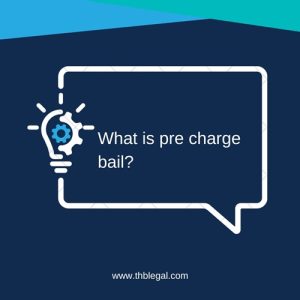Inheritance tax is changing in 2026
What farming families and business owners need to know If you own a farm,...- 11 February 2026
Posted: 22 February 2023
Since the presumption against pre-charge bail was removed in October 2022 (read about this here) we have seen an increase in the number of suspects subject to pre-charge bail. This blog discusses pre-charge police bail, the conditions you can expect to see attached to bail, the consequences of breaching these conditions and whether and how conditions can be varied.

Pre-charge bail can be imposed on a suspect where following arrest and interview the police require further time to complete their investigation before a charging decision can be made.
Police bail requires the suspect to ‘answer bail’ by attending a specified police station at a later date where they will either be provided with an update or informed of the outcome of the investigation.
The police may attach certain conditions to bail which prevent the suspect from doing certain things or committing further crimes.
Conditions the police may impose could be:
The police have a power of arrest where they have reasonable grounds to believe that bail conditions have been breached. A breach of pre-charge bail conditions in itself is not a criminal offence, there is no provision for alleged breaches of bail to be put before the court as there is with post-charge bail. However, a breach of bail could amount to a separate offence such as witness intimidation or assault.
Once in detention, a decision can be made as to whether the suspect can be charged with the original offence for which they were bailed or if no charge is authorised then a suspect can be released without charge either on bail with the same conditions imposed or without bail.
Whilst breaching pre-charge bail is not a criminal offence, it is a criminal offence to fail to answer bail on the specified date given. This can be punishable by imprisonment and will also affect your chances of obtaining bail in the future.
The police are required to ensure that any bail conditions imposed are necessary, reasonable and proportionate. They must also believe they are capable of being enforced. If you believe the police have imposed unfair or overly strict conditions on you, then you can apply to vary or remove these conditions if suitable. You can apply to the Magistrates Court by setting out in writing which parts of the bail decision you would like amended and the reasons for the court to agree said amendments. It is important to obtain legal advice if you wish to challenge police bail as the court has the power to impose stricter conditions as well as removing or reducing existing conditions.
If you have queries about bail or your bail conditions, please contact our criminal defence solicitors here or on 01245 792994 for South Essex cases, 01245 493959 for North Essex cases and 01473 226577 for Ipswich cases.
- 11 February 2026
- 09 February 2026
- 07 February 2026